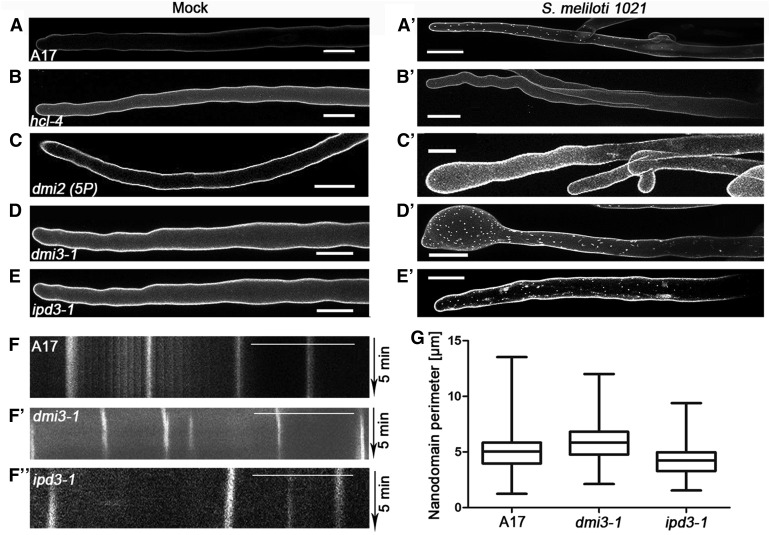Figure 3.
Genetic Requirements for Nanodomain Recruitment of DREPP.
(A) to (E) Ubiquitously expressed DREPP-GFP localizes homogenously to the PM of RHs in different M. truncatula mutants (see [A] to [E]) in the absence of rhizobia.
(A’) to (E’) Relocalization of DREPP to membrane nanodomains occurred in a symbiosis-dependent manner at 7 DAI in all genotypes (see [A’], [D’], and [E’]) except in the receptor mutants hcl-4 (B’) and dmi2 (5P) (C’).
(F) to (F’’) Kymograph analysis of an ∼80 frame time-lapse (5-min) image series to determine spatio-temporal mobility of nanodomain-localized DREPP in the wild type (A17; see [F]), dmi3-1 (F’), and ipd3-1 (F’’). Vertical lines indicate full immobility of the protein. Scale bars = 20 µm.
(G) ImageJ-based analysis of nanodomain perimeters did not reveal any significant difference between the genotypes. n = 10 RHs for each genotype and measurement. Data are means ± se. Statistical analysis was performed using an unpaired, two-tailed t test. Bars = 20 µm.

